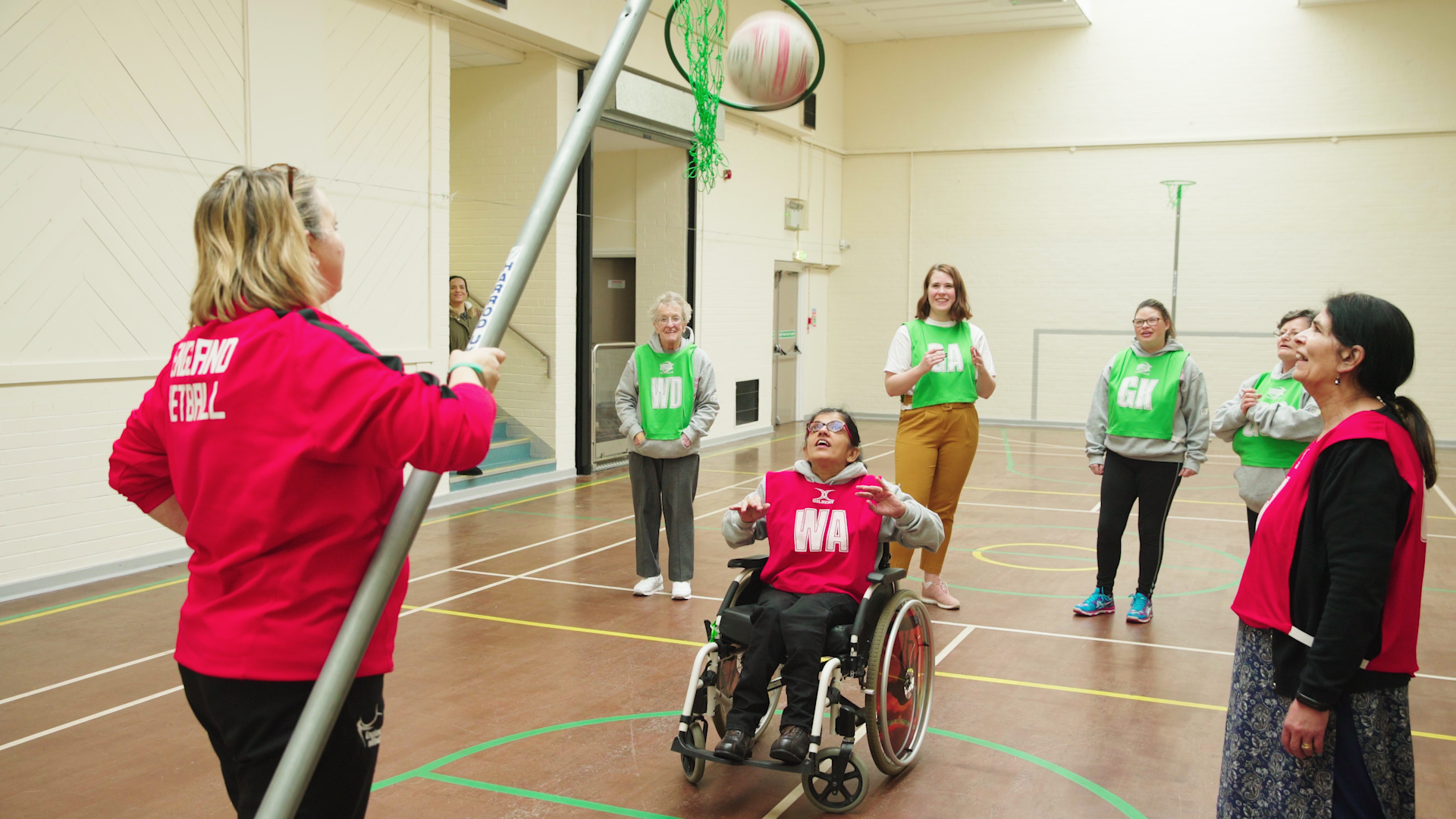Who says? The new campaign calling time on negative perceptions
A new exciting campaign from Activity Alliance is calling time on negative perceptions about disability, inclusion and sport and asks – who says?

Who says it’s not a real sport if you have to adapt it?
Who says disabled people aren’t competitive?
For far too long disabled people have faced misconceptions and presumptions on what is and isn’t possible, including in sport. Leading national charity, Activity Alliance, wants to move the conversations on, open people’s minds and shift out-dated views on disability. Who says? gives positive evidence that replaces these negative ideas.
Launched on 15 July, who says? was created in response to the charity’s recent research, which explored non-disabled people’s attitudes on inclusive activity. The findings show a lack of understanding could be causing long-lasting barriers for disabled people, leading to inactivity. For the least active audience in our country, people’s attitudes can make or break activity experiences.
Who says we can’t break down barriers?
In reality, disabled people have countless personal experiences that lead to marginalisation, low confidence and inactivity.
Who says? empowers people, on and off the field of play, to challenge their own and others’ perceptions. But, here are some facts that need serious consideration:
- Disabled people are twice as likely to be physically inactive as non-disabled people. Although we saw an increase recently, the number of active disabled people remains resistant to growth. [i]
- The main barriers to being active are psychological, logistical and physical, with psychological the most influential. This is, disabled people’s personal impression of sport and non-disabled people’s attitudes about disabled people playing sport.[ii]
- Two thirds (64 per cent) of disabled people would prefer to take part in sport with both disabled and non-disabled people, currently only half (51 per cent) are doing so. [iii]
- Research shows almost half of disabled people fear losing their benefits if they are seen to be physically active.[iv]
- Only 14 per cent of non-disabled people are aware of having previously taken part in sport with disabled people. But three quarters (73%) of non-disabled people were open to the idea. [v]
To kick it off, the campaign films challenge six findings from the research. The films provide upbeat insight with a mixture of disabled and non-disabled people. They share their own experiences and feelings on these six statements:
- It’s not a real sport if you have to adapt it
- Disabled people aren’t competitive
- Watch what you say around disabled people
- Disabled people don’t want to join in
- Disabled people might get hurt
- Everyone can’t take part together
Barry Horne, Chief Executive for Activity Alliance, said:
“Negative experiences should not be allowed to continually shape disabled people’s lives. This campaign aims to replace misconceptions with reality. If we truly want everybody to benefit from being active, then we need to call time on negative perceptions. The positive messages in our campaign provide a fresh and authentic view of the sports world. We are asking you to join us in creating a movement built solidly on equality, freedom and choice.”
Adam Blaze, Sport England’s Strategic Lead for Disability, said:
“We are delighted to see the launch of the Who Says campaign which will challenge negative-perceptions disabled people face when getting active while encouraging people of all abilities to get active together. Views that disabled people don’t want to join in, might get hurt or that everyone can’t take part together are just some of the perceptions that prevent disabled people from being active. The campaign tackles these myths head on showing that we can all do more to break down the barriers and challenge negative perceptions facing disabled people wanting to get involved in sport and physical activity.”
Who says you can’t be part of the movement?
The first campaign phase will run for six weeks over summer. Whilst the who says? movement begins, we are calling for you to get involved in the campaign by posting your own experiences using #WhoSays. Share our films and make your own to add your voice to the campaign.
Tell us your who says? You could be a disabled person who has challenged someone’s attitude whilst being active. Your organisation wants to share positive stories. Or your company plans to use the campaign to release new funding focused on inclusion.
Beyond the hashtag
Taking the conversation beyond the #WhoSays hashtag is important to us. It’s crucial we talk honestly and openly about matters that affect disabled people’s activity, like policy, funding and promotion. We hope the campaign leads to bigger conversations, greater collaboration and wider systemic responses.
If your organisation would like to get involved and you have a great idea for the campaign, please contact news@activityalliance.org.uk or call 0161 228 2868. We have a range of digital supporter materials available for organisations and the media to use.
We can’t challenge perceptions and change the reality of disability, inclusion and sport. Who says?!
Watch the perception film collection here.
Find out more visit Who says? campaign page.
Click here to view our Who says? campaign alternative communication formats - including audio description, British Sign Language and easy read.
[i] Sport England Active Lives Survey
[ii] Activity Alliance Lifestyle Report
[iii] Activity Alliance Lifestyle Report
[iv] Activity Alliance The Activity Trap
[v] Activity Alliance Taking Part with Disabled People
